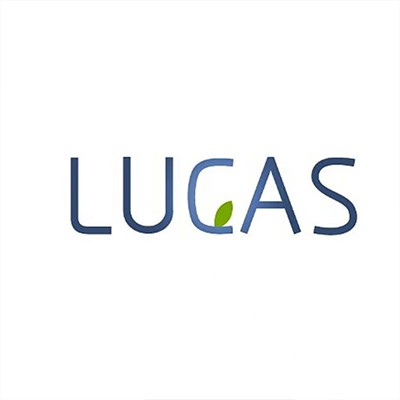



Check the admission qualifications and application requirements for study in the university

Zhongnan University of Economics and Law (ZUEL) is an institution of higher education under the Ministry of Education of the People’s Republic of China with economics, law, and management as its core disciplines. These are coordinated with the development of nine other disciplines including philosophy, literature, history, science, engineering, art, etc. It is on the list of 211 Project and 985 National Education Priority Project. The university is composed of two campuses: South Lake Campus, boarding the picturesque South Lake, and Shouyi Campus, located at the foot of the time-honored Yellow Crane Tower.
With a profound history, ZUEL is developing steadily by leaps and bounds. The university tracts to Zhongyuan University, which was founded in 1948 by the Zhongyuan Bureau of the Central Committee of the Communist Party of China under the leadership of Deng Xiaoping who was the First Secretary. Chen Yi, who was the Second Secretary of the Bureau, took charge of Director of the Preparatory Committee of Zhongyuan University. Fan Wenlan, the famous historian was appointed as the first President, and Pan Zinian, the known philosopher as the Deputy President. During the national adjustment of universities and colleges in 1953, Zhongnan Institute of Finance and Economics and South Central University of Politics and Law were founded on the basis of the Institute of Finance and Economics, and the Institute of Politics and Law of Zhongyuan University, integrating the Departments of Finance and Economics as well as Departments of Politics and Law in a number of universities and colleges across 6 provinces in the South-central China. In 1958, these two newly-established Institutes were merged with Department of Law of Wuhan University and Zhongnan Political Cadre’s Training School into Hubei University which was renamed as Hubei Training School of Finance and Economics in 1971. In January, 1978, People’s government of Hubei province authorized the Institute to change its name to Hubei Institute of Finance and Economics as one of the first batch of universities and colleges restoring the recruitment of undergraduates and post-graduates. In January 1979, under the approval of State Council, Hubei Institute of Finance and Economics was in the charge of both the Ministry of Finance of P.R.C and People’s government of Hubei province with the former as its major leader. In September 1984, based on the Department of Law of Hubei Institute of Finance and Economics, South Central University of Politics and Law was reestablished and led by Ministry of Justice P. R. C. In September 1985, the Institute was renamed again to Zhongnan University of Finance and Economics, inscribed by Deng Xiaoping personally. Later in February 2000, with the proposal of Ministry of Education approved by the State Council, Zhongnan University of Finance and Economics and South Central University of Politics and Law merged, and ZUEL was officially established on May 26th, 2000. In September 2005, ZUEL was listed on the “211 Project” and ranked among the universities of “985 Project” which acts as a platform for innovation cultivation and disciplinary construction. In October 2012, the Ministry of Education, the Ministry of Finance and the People’s government of Hubei province signed an agreement to develop ZUEL with joint efforts.

The University serves more than 20,000 full-time undergraduates,6,000 post-graduates, 1,000 doctoral students, 20,000 continuing-education students and receives 400 foreign students study in China each year. Covering a total area of over 2,900 mu (194.3 hectares) with a floor space of over 1.1 million square meters, ZUEL is one of the earliest universities offering the campus network. The University has a collection of over 3 million books and 4 million electronic publications in its library. The student apartments have been equipped with water heaters and air conditioners,etc. Venues such as stadium theater are all in readiness. Moreover, the university stadium was once the main venue for the 4th National Collegiate Sports Meet and Chinese Series A Football League. ZUEL campuses are beautiful, spacious and vigorous, with its sparkling lakes, flourishing trees and blossoming flowers.
Zhongnan University of Ecnomics and Law (ZUEL) has gradually formed the “university—schools—scholars”frame of international exchanges and cooperation, with school as the main part, scholar as the leading role and projects as the bond. At present, ZUEL has developed a worldwide cooperative research and academic exchange relationships with more than 80 universities and research institutions of more than 20 countries and regions in Asia, Europe, America, and Australia. For example, we have hosted undergraduate cooperation projects with Dongseo University (Korea) on Visual Communication Design (Cartoon and Animation Game) and Film Study (Image Content),which are the first batch of projects cooperating with Asia colleges under the China Ministry of Education. We have conducted Exchange Student Programs with Stony Brook University ESC Rennes, Háskóli Íslands and University of Tampere, etc; we have also worked jointly with Cardiff University(UK),University of Rhode island(USA), Stony Brook University(USA), University of Canterbury (New Zealand) and Curtin University (Austrialia), etc. At the same time, we not only hold several high-level international conferences annually, such as “intellectual property—Nanhu Forum”, inviting experts and scholars at home and abroad to exchanges ideas.
About 650 students go abroad for further study every year;meanwhile, about 500 students from 60 foreign countries and regions study at ZUEL, serving as the university of Chinese Institute Scholarship Program and Confucius Institute Scholarship Program. The university has established “Distinguished Foreign students Scholarship” and ZUEL Chinese Culture and Education Foundation and scholarship and foundation at various levels for foreign students. The university has set up various English language medium programs for masters and doctors and MBA students, such as Finance, Accounting, International Law, International Business, Tourism Management and Intellectual Property Law. The university has also held activities like Chinese Language competition, New Year party for foreign faculties, etc. The university is open to all educators, scholars, and students from all over the world. In April, 2009, the Confucius Institute was established with the joint efforts of Stony Brook University in New York and ZUEL. Liu Yandong, vice premier of the State Council ,then State Councilor attended the opening ceremony.







Wuhan City (hereinafter referred to as Wuhan), also known as the City of Rivers, is located in the central region of China, eastern region of Hubei Province at the confluence of the Yangtze River and the Han River. It is the capital of Hubei Province, also a famous national historic and cultural city, a central city and the only sub-provincial city in Central China, as well as an important industrial base, a science and education base and an integrated transportation hub in China. The latitude of Wuhan is 29°58'N-31°22' N, and the longitude is 113°41'E -115°05' E. Wuhan has a northern (humid) subtropical monsoon climate with abundant rainfall, sunshine, heat, and four distinctive seasons (cold winters and hot and rainy summers), occupying an area of 8,569.15 square kilometers, including the urban built-up area of 885.11 square kilometers. Wuhan is shaped like a dancing butterfly, the maximum distance on x-axis in the rectangular plane coordinate system is 134 kilometers and the maximum longitudinal distance on y-axis is about 155 kilometers. Among the villages of Wuhan, Jiangjunshan Village, Xugu Town, Xinzhou District is easternmost, Guoguang Village, Zhuru Sub-district, Caidian District is westmost, Junbao Village, Husi Town, Jiangxia District is southmost, and Lichong Village, Caidian Township, Huangpi District is northmost.
Since Wuhan was approved as an opening-up city along the Yangtze River in 1992, it has gradually become a popular foreign investment destination. As of the end of 2020, Wuhan accommodates 305 Fortune Global 500 enterprises, while France, the United States, South Korea and the UK set up consulates general in Wuhan in 1998, 2008, 2011 and 2015 respectively. Wuhan enjoys ever-closer exchanges with the rest of the world in economy, trade, science and technology, education, culture and other fields, as well as dynamic and friendly ties with foreign governments, non-governmental agencies and social organizations. As of the end of June 2021, Wuhan has established sister-city relationship with 28 foreign cities, Oita in Japan, Pittsburgh in the United States, Duisburg in Germany, Manchester in the United Kingdom, Galati in Romania, Kiev in Ukraine, Khartoum in Sudan, Gyor in Hungary, Bordeaux in France, Arnhem in Netherlands, Cheong Ju in South Korea, Sankt Polten in Austria, Christchurch in New Zealand, Markham in Canada, Borlange in Sweden, Kopavogur in Iceland, Ashdod in Israel, Essonne in France, Izmir in Turkey, Tijuana in Mexico, Saratov in Russia, Concepcion in Chile, Bishkek in Kyrgyzstan, Chalcis in Greece, Izhevsk in Russia, Swansea in the United Kingdom, Entebbe in Uganda, and Bangkok in Thailand.



Lucas
Managing Director
电话 WhatsApp:
+86-139-6450-0313
微信 WeChat:
LUCAS_International
邮箱 E-mail:
info@lucas-international.cn
留学中国![]() 服务中心
服务中心
Study in China Service Center


Jessie
Admission Director
电话 WhatsApp:
+86-155-8950-1597
微信 WeChat:
domestic_cooperation
邮箱 E-mail:
info@lucas-edu.cn
留学中国![]() 服务中心
服务中心
Study in China Service Center


Sophia
Marketing Director
电话 WhatsApp:
+86-132-1028-7289
微信 WeChat:
marketing_lucas
邮箱 E-mail:
marketing@lucas-international.cn
留学中国![]() 服务中心
服务中心
Study in China Service Center

